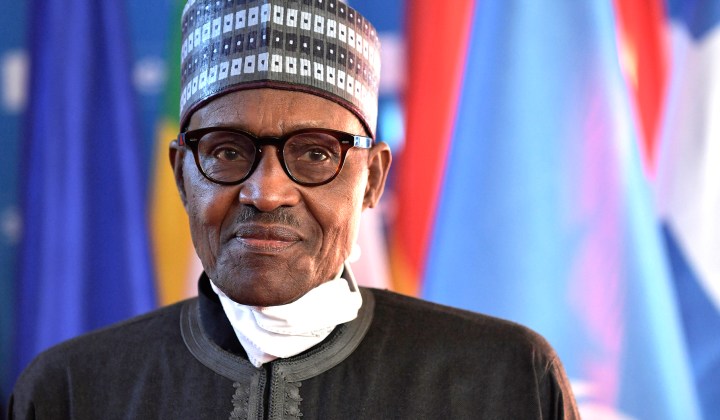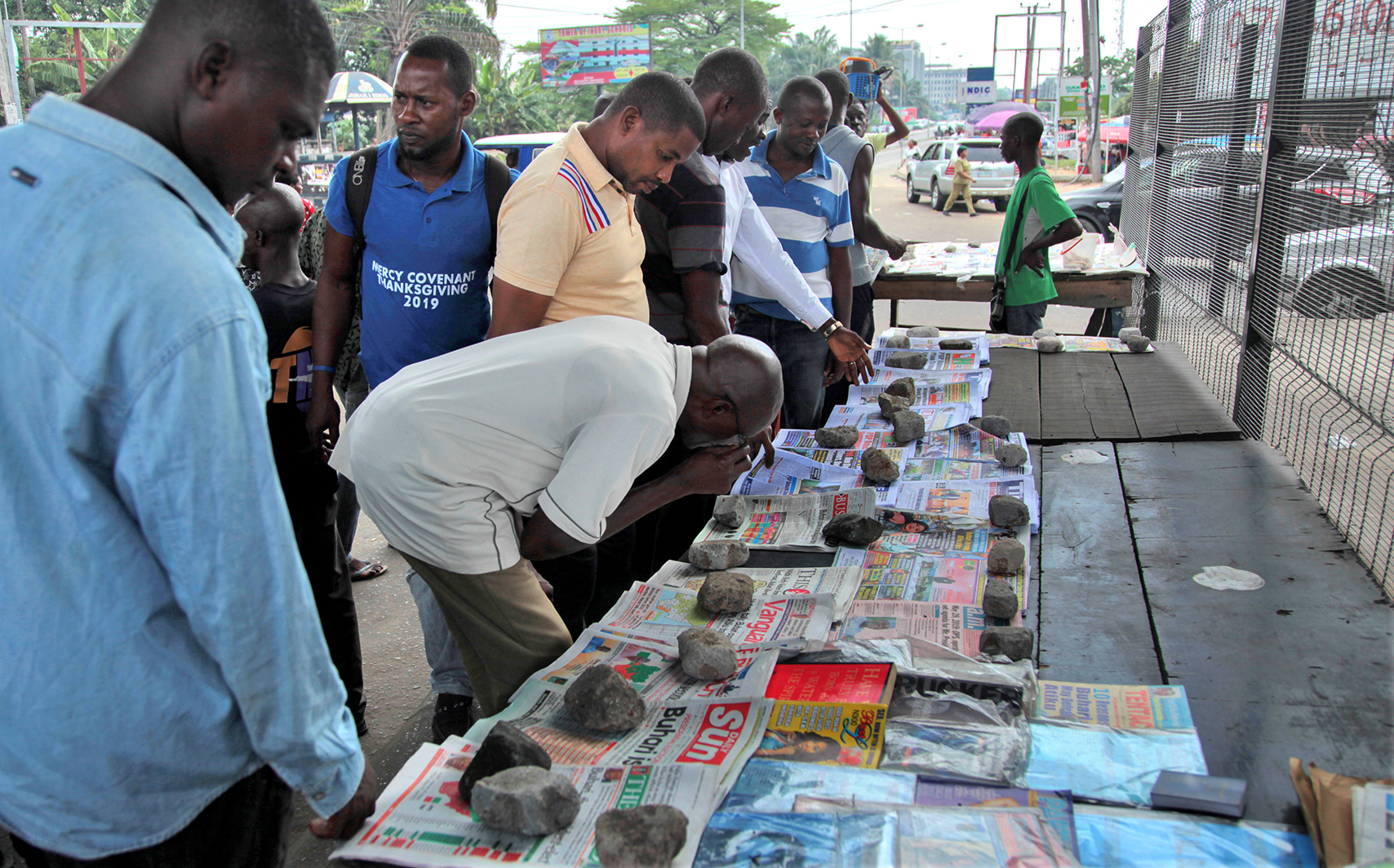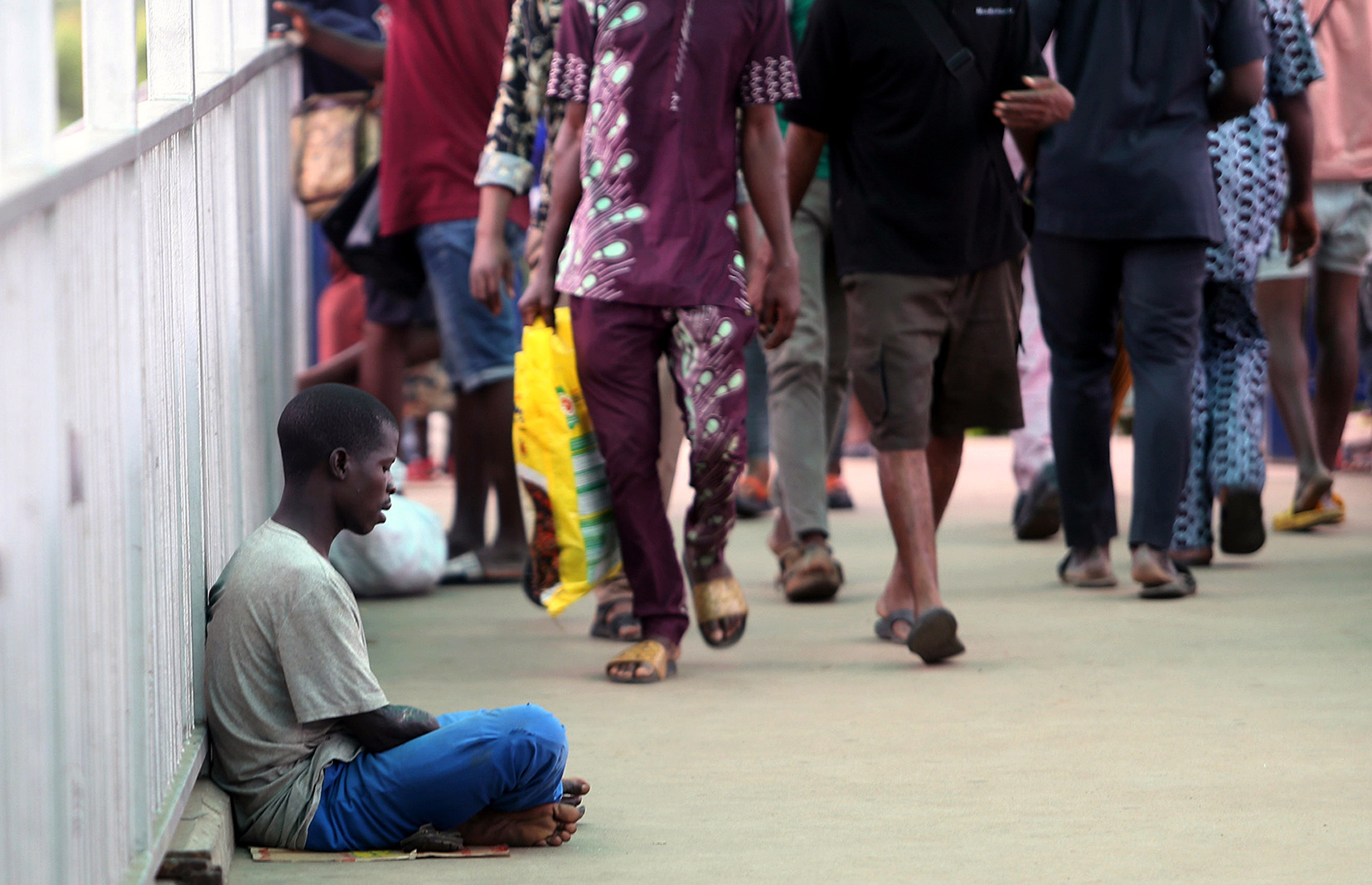LEADERSHIP FAILURE OP-ED
Life after Muhammadu Buhari – political rhetoric, governance and the media in Nigeria

Campaign promises are such an important part of the election process because voters use party election statements to infer the broad vision of political parties and identify with policy preferences which are reflected in their voting choice. However, talk is cheap. There is a significant difference between aspiration and reality. Even presidents with the best intentions can have difficulty making them happen.
On 25 February 2023, Nigerians will elect their president, deputy president, members of the national assembly and the senate, while state elections will be held two weeks later, on 11 March. By law, the incumbent president, Muhammadu Buhari, is unable to seek re-election, leaving the contest between Bola Tinubu, the new presidential candidate for the All Progressive Congress, Peter Obi of the Labour Party and Atiku Abubakar of the People’s Democratic Party.
These elections will take place against a backdrop of a moribund economy in which 95.1 million people are wallowing in abject poverty (the highest in sub-Saharan Africa), 23.2 million are jobless (the highest in at least 13 years and the second-highest in the world), inflation (18%) is skyrocketing, 116 million people are food insecure, 10.1 million children are out of school (the highest in sub-Saharan Africa), 108 million are homeless, and $40.7-billion is lost annually through capital flight, whereas the government’s current stock of debt stands at a staggering N41.6-trillion.
Paradoxically, Nigeria has the biggest economy in Africa, with an annual output of $430-billion. Despite problems meeting its Opec quota, it is the continent’s largest oil producer. However, it remains a deeply dysfunctional country.

Atiku Abubakar, Nigeria’s main opposition presidential candidate. (Photo: George Osodi / Bloomberg via Getty Images)
For most of their lives, Nigerians have experienced a blizzard of governmental failure. Many have lost faith in electoral processes, their leaders, and the government they are supposed to run.
Read more in Daily Maverick: “Nigeria Lifts Rate to Record, Warning of More Hikes to Come”
According to the International Institute for Democracy and Electoral Assistance database: voter turn-out in Nigeria’s presidential elections dropped from 53.68% in 2011, from a total voter age population of 81,691,751 to 43.65% in 2015, from a total voter age population of 91,669,312 to 34.75% in 2019 from a total voter age population of 106,490,312.
Crisis of competence
The forthcoming elections have nevertheless ignited widespread public attention. Nigeria’s electoral body, the Independent National Electoral Commission, recently reported an unprecedented increase in the number of young Nigerians who are coming forward to be registered. The biggest question, however, is what leadership should they elect to produce outcomes that can lower the staggering poverty figures highlighted above?
It is a very important question but almost no one talks about the skills political candidates need to avoid the kinds of failures that are so devastating to their terms of office – the skills of administration and management.
Today we face a crisis of competence in the Nigerian presidency. Although some analysts consider ethnicity, religion and polarisation as the most vicious pathogens in Nigerian politics, another critical aspect is competence. In other words, modern Nigerian presidents lack the qualities required for good governance.
Too much and too often they are fixated on articulating policies, and abandon the more prosaic chore of executing them. They exclusively focus on the public media narrative of their presidency and gloss over the business of running the government itself, making terrible blunders, and failing to deliver on their campaign promises.
Read more in Daily Maverick: “Nigeria’s debt crisis negatively impacting counterinsurgency efforts against Boko Haram”
The main reason Goodluck Jonathan, Buhari and some others before them became unpopular was the failure to deliver on their promises. Other analysts argue that their policies were wrong from the onset. But in fairness, the policies themselves are not necessarily the problem. Policies normally fail because they are not implemented well.

People read the latest news at Port Harcourt in River state, Nigeria, a day after Muhammadu Buhari won the 2019 presidential election. (Photo: EPA-EFE / Jayden Joshua)
There was nothing wrong on paper with Jonathan’s transformation agenda, nor was there anything wrong with Buhari’s staunch anti-corruption stance and his National Social Investment Programme. Matters only came to a head when things that were supposed to happen did not happen, when the promised jobs, investment, hospitals, energy, clean water and schools did not materialise.
In politics, as in business, the ability to deliver matters.
These leaders spent too much time, energy and money travelling and giving “ọrọ ti o lagbara”, fiery speeches, in Lagos, Abuja and Ibadan, promising people everything from jobs, houses and affordable healthcare, to education and telecommunication services, which meant “kere si akoko lori ise”, less time on the job. They hired genius scholars who wrote brilliant passages for their speeches and staged perfect scenes for the television cameras.
Visit Daily Maverick’s home page for more news, analysis and investigations
Some of their cabinet ministers were chosen from a cohort of campaign managers and party comrades who were “skilled in the art of communicating but not in the art of governing”, as the political scientist Samuel Kernell puts it in his classic book, Going Public.
They spent so much time talking that they mistook it for doing.
While in office, they fattened their pockets with brown envelopes and watched while service delivery in healthcare and municipalities dilapidated astoundingly. They flew on expensive jets and spent nights in luxurious hotels on foreign trips with huge entourages costing taxpayers millions. They had at their disposal all sorts of experts in national planning, education, agriculture, health, mathematical finance, aviation, energy and technology. Yet they failed dismally to put it all together and deliver.
How to unlock utopian leadership
Tinubu, Obi Atiku Abubakar may get elected for their ability to convince Nigerians, but they will only succeed, in the short and long term, through their ability to execute and implement policies that can eradicate poverty and grow the economy. If these candidates spent as much time on the business of the government as they do on preparing their next television address, press briefing, public debate, parliament session or international conference (as they are called on the podium), they might figure out how to create jobs, fix roads, reduce crime in Lagos and quell Boko Haram for good.

A beggar in the Ojodu district of Lagos. Elections will take place against a backdrop of a moribund economy in which 95.1 million people are wallowing in abject poverty. (Photo: EPA-EFE / Akintunde Akinleye)
“The obsession with communication, presidential talking and messaging is a dangerous mirage of the media age, a delusion that inevitably comes crashing down in the face of governmental failure. The challenge for modern presidents is to add some governing skills to their campaign skills, or, in other words, to stop talking long enough to figure out how to govern,” wrote Elaine Kamarck in her recent book, Why Presidents Fail And How They Can Succeed Again.
Read more in Daily Maverick: “Critical issues of party politics, instability and governance up the stakes in run-up to Nigeria’s 2023 elections”
Put differently, knowing how to sign good deals, stimulate business, attract investments, balance the budget, control inflation, pass legislation and maintain peace, security and justice, is key to unlocking the doors of utopian leadership and sustainable development, and accountable and inclusive institutions at all levels.
Until Nigerians elect candidates who know how to run institutions and have a track record of doing so, listen and allow others to be heard, make wise appointments, talk less and do more, policy implementation failures will continue to shatter confidence in the political system. These failures have serious repercussions for political power (far more so than communications failures), and politicians have a hard time rebounding from them. DM/MC
Anotida Chikumbu is a historian and political economist. He is a PhD candidate and assistant lecturer in the department of history at the University of Massachusetts Amherst.

















 Become an Insider
Become an Insider
Comments - Please login in order to comment.